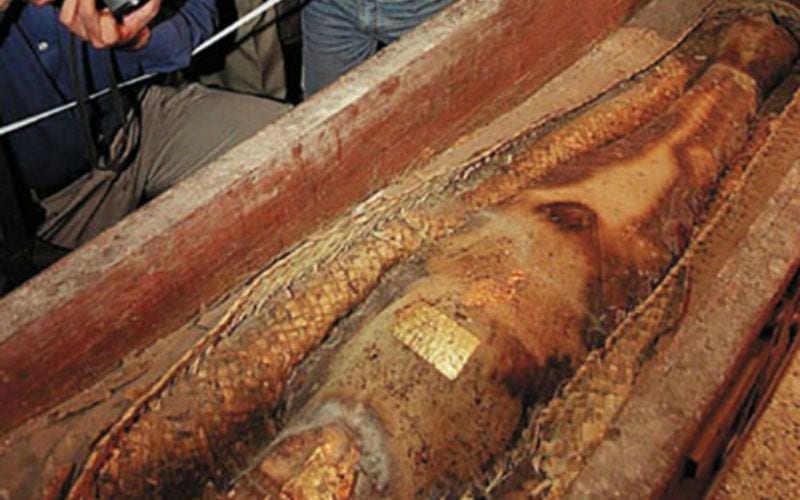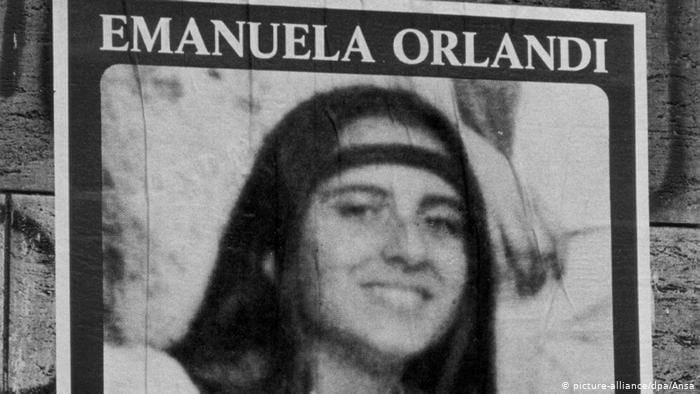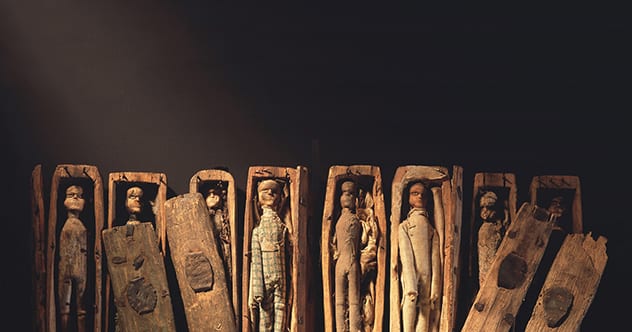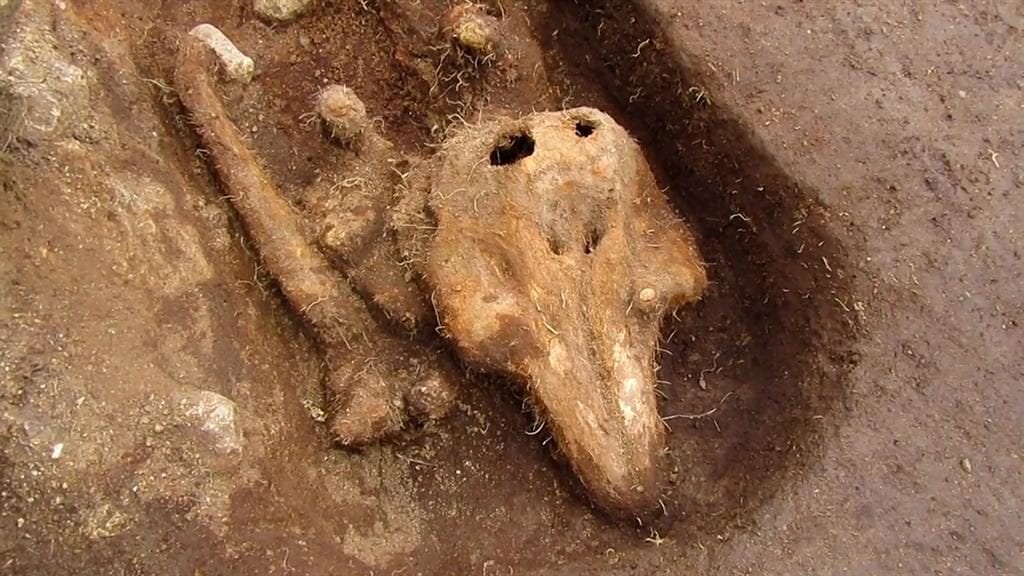 Movies and TV
Movies and TV  Movies and TV
Movies and TV  History
History 10 Wars That Sound Made Up (but Absolutely Happened)
 Movies and TV
Movies and TV 10 Movie Adaptations That Ruined Everything for Some Fans
 History
History 10 Dirty Government Secrets Revealed by Declassified Files
 Weird Stuff
Weird Stuff 10 Wacky Conspiracy Theories You Will Need to Sit Down For
 Movies and TV
Movies and TV 10 Weird Ways That TV Shows Were Censored
 Our World
Our World 10 Places with Geological Features That Shouldn’t Exist
 Crime
Crime 10 Dark Details of the “Bodies in the Barrels” Murders
 Animals
Animals The Animal Kingdom’s 10 Greatest Dance Moves
 Movies and TV
Movies and TV 10 Box Office Bombs That We Should Have Predicted in 2025
 Movies and TV
Movies and TV 10 Movie Franchises That Started Dark but Turned Surprisingly Soft
 History
History 10 Wars That Sound Made Up (but Absolutely Happened)
 Movies and TV
Movies and TV 10 Movie Adaptations That Ruined Everything for Some Fans
Who's Behind Listverse?

Jamie Frater
Head Editor
Jamie founded Listverse due to an insatiable desire to share fascinating, obscure, and bizarre facts. He has been a guest speaker on numerous national radio and television stations and is a five time published author.
More About Us History
History 10 Dirty Government Secrets Revealed by Declassified Files
 Weird Stuff
Weird Stuff 10 Wacky Conspiracy Theories You Will Need to Sit Down For
 Movies and TV
Movies and TV 10 Weird Ways That TV Shows Were Censored
 Our World
Our World 10 Places with Geological Features That Shouldn’t Exist
 Crime
Crime 10 Dark Details of the “Bodies in the Barrels” Murders
 Animals
Animals The Animal Kingdom’s 10 Greatest Dance Moves
 Movies and TV
Movies and TV 10 Box Office Bombs That We Should Have Predicted in 2025
10 Creepy Mysteries That Are Still Unsolved, Including the Poisoning of the Titanic Cast
There is just something about an unsolved mystery, isn’t there? Sure, it’s great when you eventually find out why something happened the way it did. Still, man, the idea of an event taking place without an immediate plausible explanation just sends those debating skills into overdrive and makes the conspiracy theories pile up. Below are just some examples of mysteries that will probably be debated for a long time to come.
10 The Mummy That Wasn’t

Back in 2000, Pakistan, Iran, and Afghanistan battled for ownership of what they believed to be the mummified remains of a 2,600-year-old Persian princess. Police found the mummy during a raid of a Baluchistan chieftain home in Kharan, Pakistan and was to be sold on the black market for millions. When she was discovered, the mummy’s head was adorned with a golden crown, and there were gold ornaments in her coffin, which truly made it seem that an archaeological wonder had been found. However, not everyone was convinced that the mummy was the real deal. Professor Ahmad Dani, director of the Institute of Asian Civilizations in Islamabad, claimed to have known from the beginning that the mummy was not all it was cracked up to be.[1]
He was not wrong. After a detailed study of the remains, it was soon discovered that the body was not 2,600 years old and not a Persian princess. It was revealed that the coffin she rested in was not as old as her remains were believed to be and that the mat she was laid on was possibly a mere five years old. The Persian mummy was now believed to be the body of a 21-year-old female murder victim—her neck, jaw, and back broken. Finally, it was confirmed, with the help of radiocarbon testing, that the victim had died in 1996. The “mummy” was buried in 2005 without the victim ever being identified.
9 Dutch Students’ Deaths

On 1 April 2014, two Dutch students, Lisanne Froon and Kris Kremers, waved goodbye to the family hosting them during their long-planned trip to Panama and walked off with the family dog for a hike along the Baru volcano. They posted on Facebook that they were going to walk around Boquete before tackling the hiking trail.
That evening, the host family noticed the dog traipsing back into the house, but there was no sign of the two young women. Assuming they may have decided to stay overnight on the trail, the family waited until morning. However, when they discovered that Kris and Lisanne never showed up for their private walking tour of Boquete, the family immediately contacted the police. Kris and Lisanne’s parents arrived in Panama five days later and waited anxiously for news of their children as police and detectives scoured the forest for ten days.[2]
It took 10 weeks for a break in the case. A local woman turned up at the police station with a blue backpack she had found on a riverbank in the Boco del Toros region. Inside the backpack were Lisanne’s passport, sunglasses, two pairs of bras, a water bottle, and some cash. Police also found a camera and both girls’ cell phones in the backpack. When they scrolled through the phones, they found that there had been 77 attempts to call the police and emergency services in both Panama and the Netherlands. Due to the lack of signal in the area, these calls did not go through. On one of the phones, they found several photos of the trail and surrounding forest. There were also photos taken on 8 April of the girls’ belongings scattered over some rocks and a disturbing photo of the back of Kris’ head showing blood streaming from her temple.
Two months later, bones were found in the forest. DNA tests confirmed that the bones belonged to the two missing girls. Later in 2014, they were publicly declared dead of a hiking accident. Police never found out how they died or if someone was responsible for their deaths.
8 Leatherman

Historian Dan DeLuca spent most of his life researching a deceased homeless man’s life. Ever since he stumbled upon his grave in the Sparta Cemetery in Ossining, New York, DeLuca had been fascinated with the man known as Leatherman. He learned that the inscription on Leatherman’s gravestone incorrectly referred to the deceased as Jules Bourglay of Lyons, France. He also knew that Leatherman had been a source of mystery for people in Westchester County and western Connecticut since the 1850s.[3]
Leatherman was said to have had a strange ritual that contributed to much of the speculation surrounding him. Once a month, he would walk 360 miles between the Hudson and Connecticut rivers. Being homeless, he was dressed very modestly in patchwork garments and wooden shoes and very rarely spoke to anyone. He slept in the forest and sometimes in caves, but he would never stay inside a building for more than a couple of minutes. He often asked for food as he passed by a farmhouse, and the occupants were amazed at his appetite. He could eat a staggering amount while remaining standing at the front door.
The press began following Leatherman’s movements and chronicled his travels for over 30 years. In modern times the research into this mysterious man continues. Pearl Jam got caught up in the mystery and wrote a song about him. Leatherman’s real name and age at that time remain unknown, as does his place of birth and where he grew up.
7 Nina Craigmiles’s Blood-Stained Crypt

Nina Craigmiles was born to Myra Adelia Thompson Craigmiles and John Henderson Craigmiles on August 5, 1864. As she grew, Nina learned to love riding in a horse-drawn buggy. During one such outing with her grandfather on St. Luke’s Day in 1871, the buggy they were riding in was hit full-on by an oncoming train as they were crossing the railroad tracks. Seven-year-old Nina was killed on impact.
While her family grieved, Nina’s father changed his will to include a clause that stated he wished to be buried inside the mausoleum where Nina’s ashes rested. John Craigmiles also ensured that an Episcopal church was built in Nina’s memory, which included the marble mausoleum in the churchyard to keep Nina’s ashes in. The church was named St. Luke’s Memorial Episcopal Church and was consecrated in 1872.[4]
John died in 1899 and was buried, as requested, inside Nina’s mausoleum. Sometime later, red stains started appearing on the outside of the mausoleum. Efforts to clean the stains failed, and when the marble blocks were replaced, the stains simply reappeared. In modern times, sightings have been reported of a little ghost girl in 1800s clothing, playing outside the mausoleum. The red stains, whom many believe to be blood, are still visible on the Craigmiles Mausoleum in Cleveland and tourists love relating the story. However, the cause of the stains remains a mystery.
6 The Circleville Letters

In 1976, several Circleville, Ohio residents began receiving strange letters detailing personal information about their lives. The letters contained threats of violence and personal information that, in some cases, only the recipient was aware of. Many of these letters were hatefully written with vulgarisms and lewd artwork. None of the Circleville letters had any return address, and all appeared to come from somewhere within Columbus. Every single letter was written in the same distinct style—block letters—and might have been an attempt to cover up the author’s personal handwriting.
Bus driver Mary Gillispie was accused of a supposedly non-existent affair with the superintendent of schools. The writer told Mary that they had been observing her house and knew she had children. It was postmarked in Columbus, Ohio, but had no return address. Within eight days, Mary received a similar letter. She kept the letters to herself, until her husband, Ron, received one as well. The letter stated that if Ron did not stop his wife’s affair, his life would be in danger. The couple believed that the letter writer was Ron’s brother-in-law, Paul Freshour, and the letters stopped after they sent accusatory letters to Freshour—at least for a time.
Ron Gillispie died a few weeks later in a suspicious car accident as the letters continued, now being sent to more residents ordering a more thorough investigation into the crash. After a botched attempt on Mary Gillispie’’s life six years later, police arrested Freshour for attempted murder. He was sentenced to 25 years in prison as his gun was used in the boob-trap device meant to kill Mary. While in prison, the letters continued, still postmarked from Columbus, even though Freshour was nowhere near there, nor were any letters sent from the prison. The writer of the letters is still unknown, although there have not been any letters received since 1994.
While Unsolved Mysteries was filming this story, they received a postcard, apparently from the letter writer. It read “Forget Circleville Ohio: Do Nothing to Hurt Sheriff Radcliff: If You Come to Ohio You El Sickos Will Pay: The Circleville Writer.”[5]
5 Mysterious Vatican Disappearance

When 15-year-old Emanuela Orlandi finished her second year of high school in Rome in 1983, she chose to continue with flute lessons at the Tommaso Ludovico da Victoria School. On 22 June 1983, Emanuela asked her brother, Pietro, to accompany her on the bus to the music school, but he had prior commitments. She arrived late to class that day and later telephoned her sister to inform her that she had been given a job opportunity to become a representative of Avon Cosmetics. The rep who had presented her with the opportunity spoke to her before her music lesson, causing Emanuela to run late. Later that day, Emanuela told a friend of hers about the job, before getting into a BMW and riding off.[6] Emanuela Orlandi was never seen again.
Many false leads materialized over the years, as did an abundance of theories on what may have happened to the young girl. Some believe that a Bulgarian neo-fascist youth group abducted her. Others claim that she is living in a Muslim community in Paris. Even more outrageous theories include that her kidnapping was part of a plot to kill St. John Paul II or could even be linked to the seedy underbelly of Rome.
In 2017, an Italian journalist claimed to have stolen a document from the Vatican which suggested that the Holy See arranged Emanuela’s disappearance. The Vatican immediately claimed, “fake news.”
In July 2019, the Vatican excavated the tombs of two 19th century German princesses in the Pontifical Teutonic College cemetery after an anonymous tip was received that Emanuela’s remains were buried inside them. Instead, they found completely empty tombs, meaning the remains of the princesses are in question as well. During these excavations, two sets of bones were found under a stone slab and were inspected and determined to be too old to be the remains of Emanuela Orlandi. The Vatican closed its investigation, but the mystery still remains—what happened to Emanuela?
4 Kathy Hobbs Premonition

When Katherine Marie Hobbs was eight years old, her parents divorced. As if this wasn’t bad enough for the young girl, her best friend died while they were both in middle school. Soon after, Katherine or Kathy as her family called her, started having disturbing premonitions that she would not live past 16 years of age.[7]
Kathy and her sister Theresa moved to a Las Vegas suburb with their mother where Kathy made new friends and eventually woke up on her sixteenth birthday on 20 April 1987 feeling greatly relieved that nothing terrible had happened to her. As the days passed after her birthday, Kathy grew confident that her premonitions were nothing more than a figment of her imagination.
On July 23, 1987, Kathy left her house to buy a novel at the local supermarket a block and a half away. Her mom kissed her goodbye in case she fell asleep before Kathy returned.
The next morning, Kathy’s mom knocked on her bedroom door only to discover it was empty. Kathy never made it back home. Her mother filed a missing person’s report immediately. Nine days later, a hiker found Kathy’s body near Lake Mead. When police were called, they discovered rocks at the murder scene with Kathy’s blood on them, indicating that the teenager had been hit in the head repeatedly. The news devastated Kathy’s mother and sister. Later, while cleaning out her bedroom, they found letters written by Kathy to each family member. The letters were dated a month before Kathy’s sixteenth birthday. In them, she wrote that she loved them dearly and that they shouldn’t be upset or dwell over her death.
Kathy Hobbs’ murder remains unsolved, even though a serial killer named Michael Lee Lockhart was a prime suspect and eventually executed for another murder.
3 Titanic Poisoning

On the last day of filming the movie, Titanic, in Nova Scotia, James Cameron suddenly felt inexplicably ill and disoriented. When he started vomiting, he realized something was very wrong. Once he got back to the set, he found he wasn’t the only one feeling strange as some of the cast and crew were vomiting or crying and some even laughing.
At Dartmouth General Hospital, things took an even weirder turn when a crew member stabbed Cameron in the face with a pen. At the same time, others started stealing unoccupied wheelchairs and wheeling themselves up and down the hospital corridors. Cameron, who was bleeding from the pen stab wound, couldn’t stop laughing.
Once the hospital staff ruled out food poisoning, they realized that chowder consumed by more than 60 people on set had been laced with PCP.[8]
Theories abounded, one of which had it that a dismissed crew member tried to take revenge by poisoning the food. Officially the mystery remains long after the case was closed in 1999 due to a lack of suspects.
2 Miniature Coffins

In 1836 a group of boys set off for Arthur’s Seat in Edinburgh, Scotland to hunt rabbits. Intrigued by a concealed cave, the boys decided to peek inside. After pulling away the stones covering the entrance, they stumbled upon 17 miniature coffins, each with a wooden doll inside. The dolls had big eyes and were dressed in cotton clothing.[9]
When the discovery was reported in the Scotsman newspaper, the article mentioned that the coffins were decorated with funeral trappings. It seemed that they had been placed inside the cave recently.
As is always the case with unexplained discoveries, multiple theories were presented to try and explain the coffins. Some people thought it might be children playing a trick, while others mused that witches might have used the coffins for rituals. Yet another theory said that the coffins may have been part of an ancient custom to give sailors who died at sea a Christian burial. A dark theory suggested that the coffins may have been set up in tribute of killers William Burke and William Hare who murdered 17 people.
The true purpose of the coffins and who placed them in the cave remains a mystery.
1 The Handless Monk

In 2017, archaeologists made the startling discovery of a medieval dolphin skeleton on an islet off the coast of Guernsey. The following year, they made an even more baffling discovery: that of a male skeleton with no hands. Following an investigation, it was found that the skeleton of the man, believed to be a monk, was buried at a much later time than the dolphin, and the two incidents were not related.[10]
Archaeologists initially believed the islet, Chapelle Dom Hue, used to be much larger and home to a few Christian monks during the Middle Ages. One of the theories surrounding the mystery of the skeleton has it that the monk may have suffered from leprosy and had his hands cut off because of it. However, some experts feel this is unlikely and don’t believe that the man was a monk. The details on the skeleton’s clothing indicate the body may have been buried in the 17th century, long after monks would have inhabited the islet.
The skeleton discovery remains shrouded in mystery for the time being, as experts are still in the process of examining the remains and investigating a different theory which states that the man may have been a sailor who died at sea and was thrown overboard before washing up on the islet.
If you are in the mood for more Unsolved Mysteries, look no further than 10 Creepy And Obscure Unsolved Mysteries and 10 Bizarre Anonymous Tips That Shook Up Unsolved Crimes








